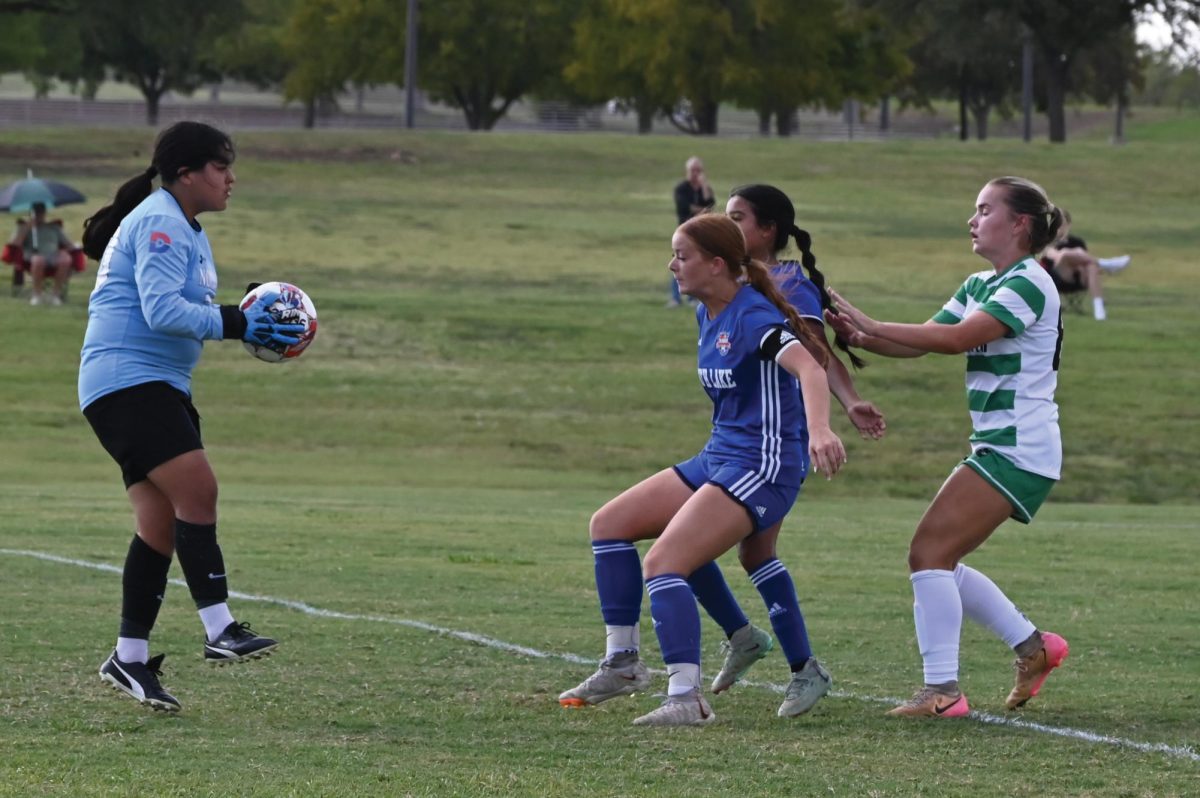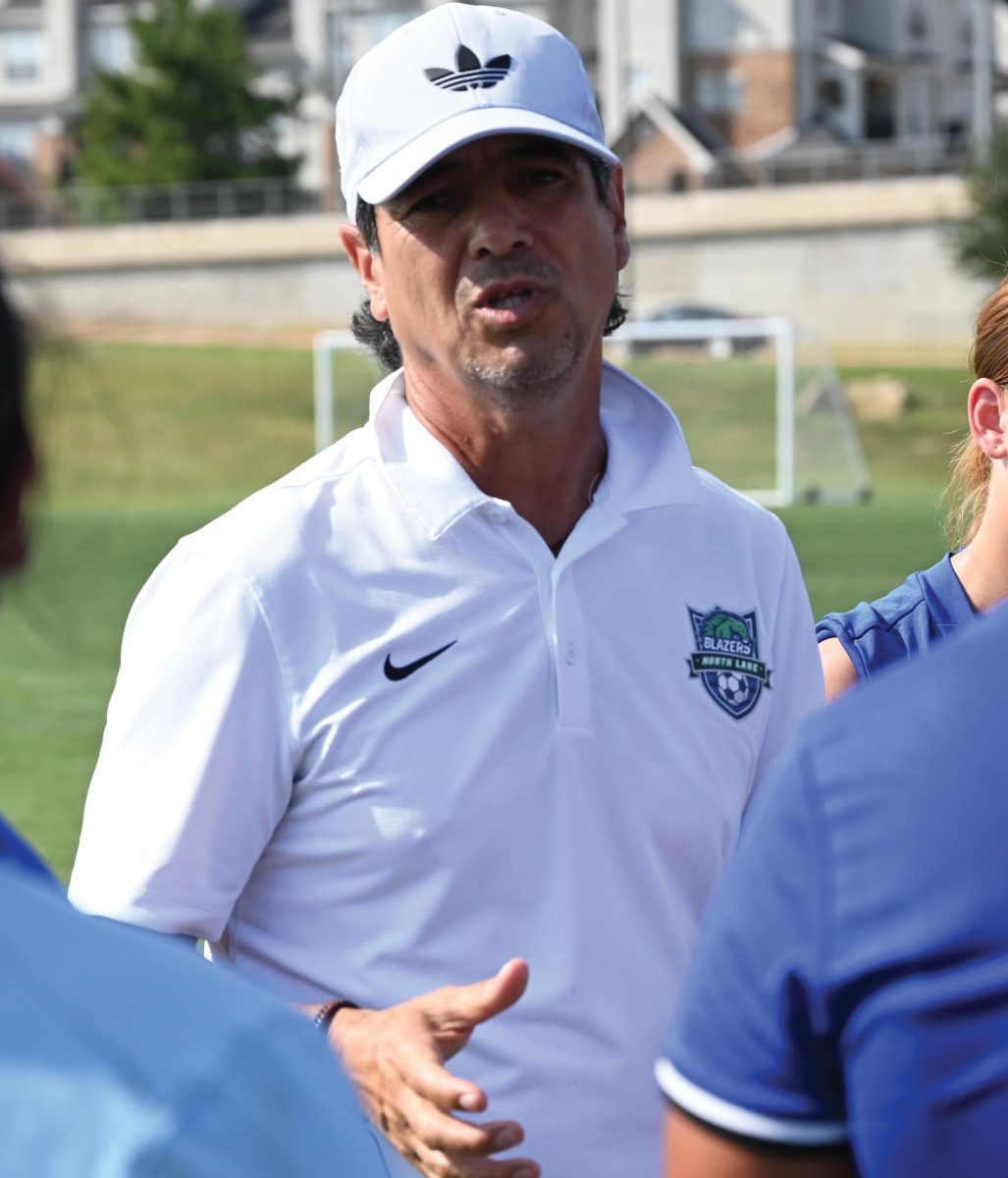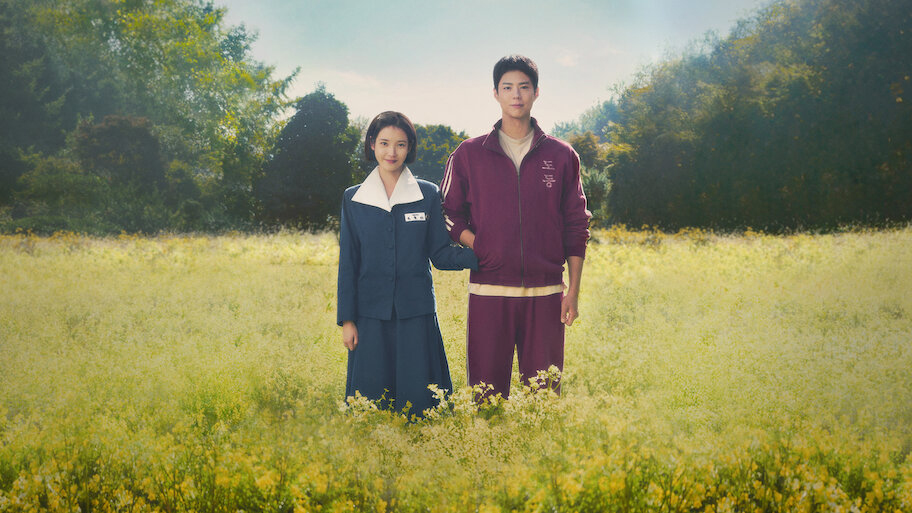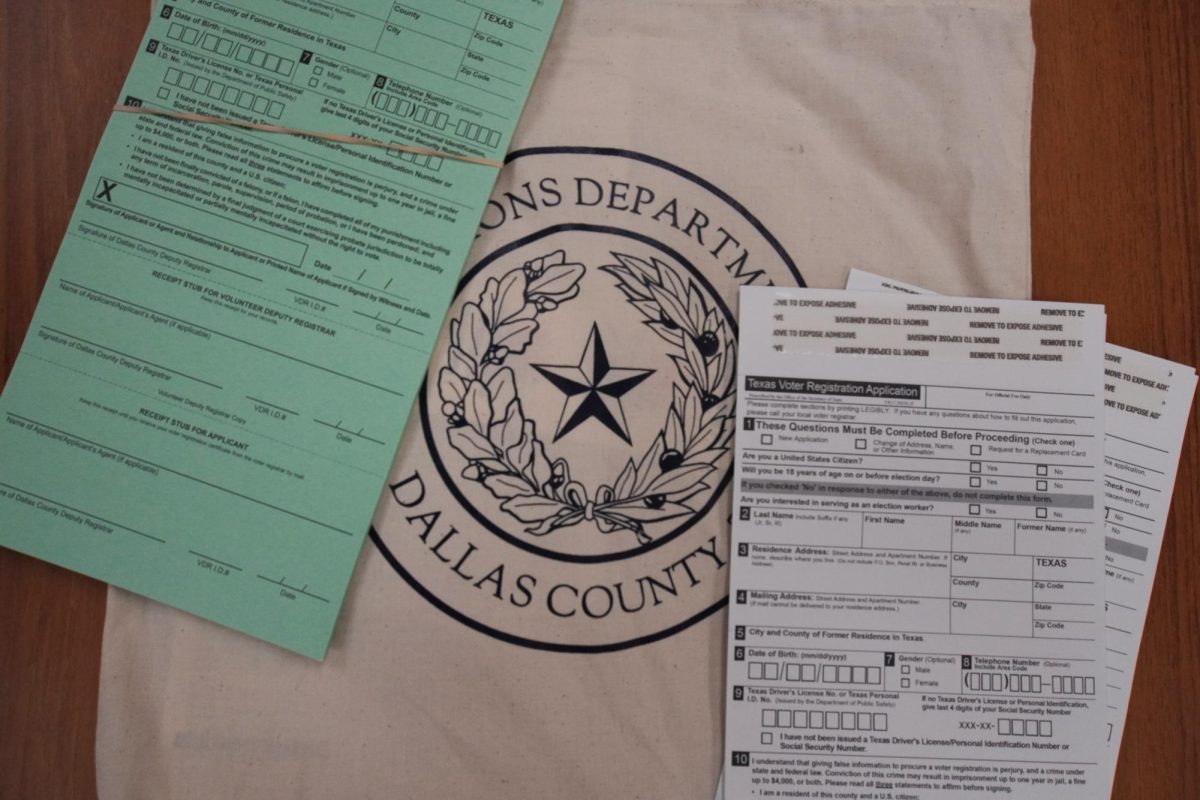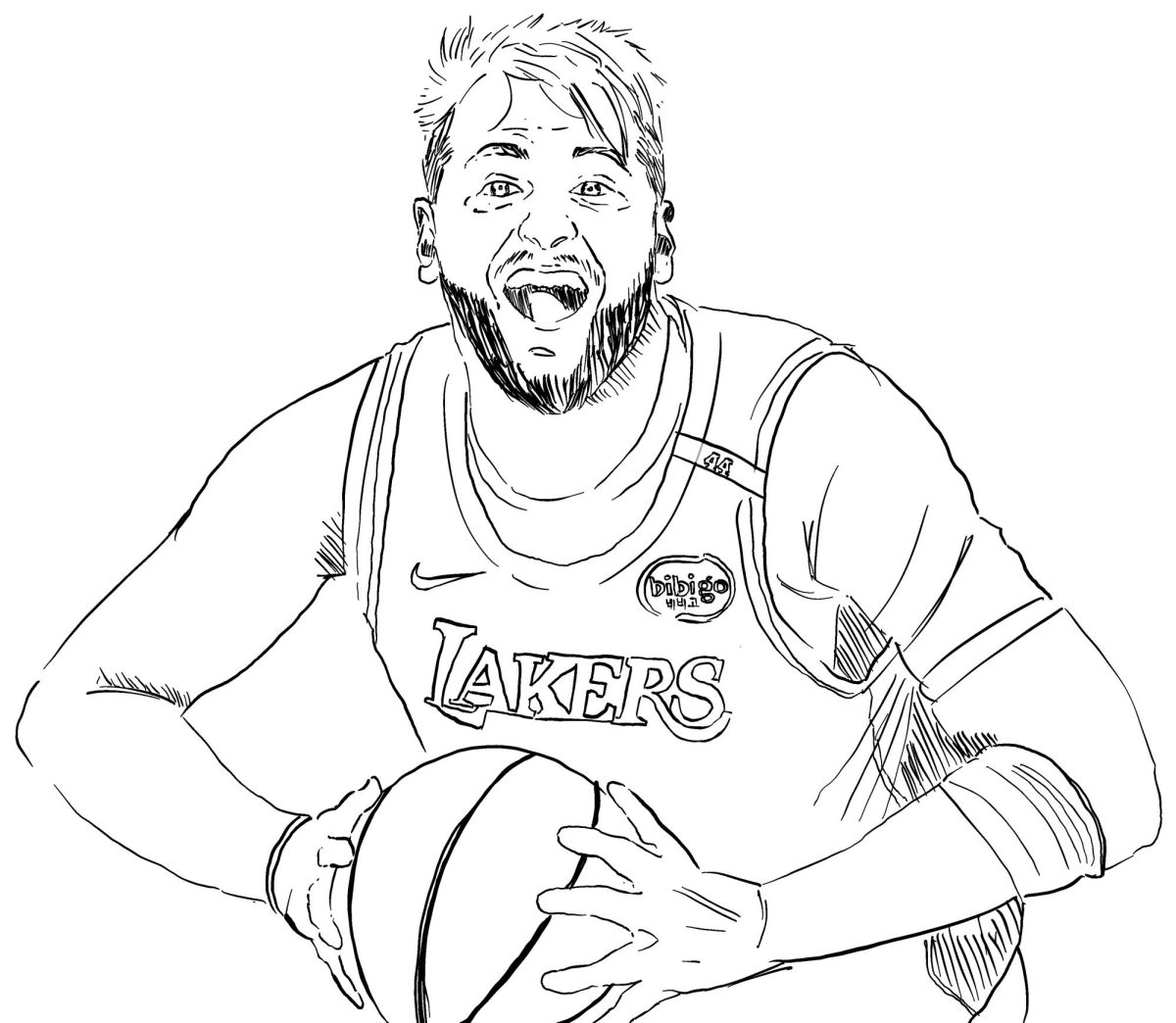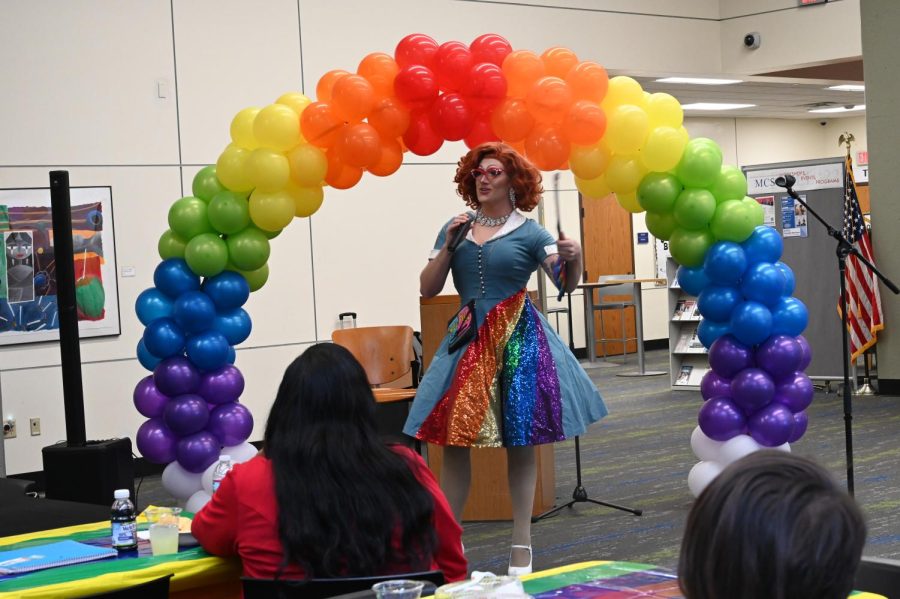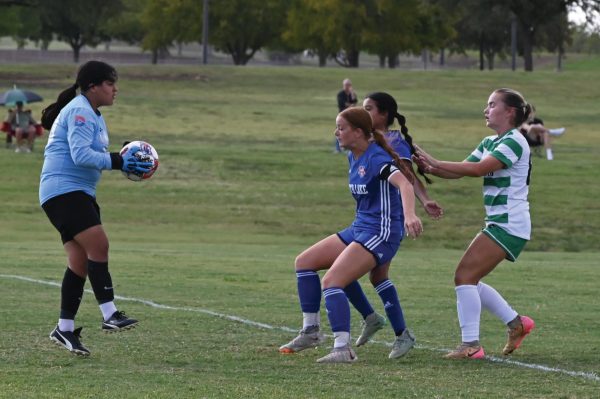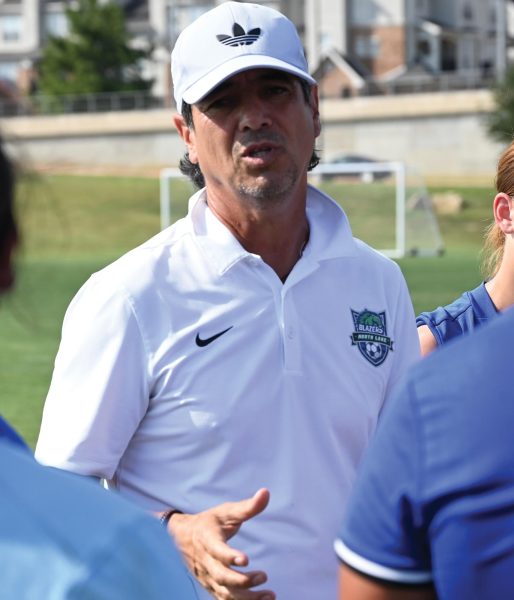LGBT event in campus
Ms. Penny Cost, aka Isaac Simmons, spoke about her experiences of being a drag queen and intrigued the crowd with her performances.
Dogs who completed their professional training graduated became official service dogs, and met their lifelong companions.
Canine Companions hosted their matricula and graduation ceremony at the North Lake Campus on Nov. 4. Canine Companions’ mis- sion is to provide service dogs to children, adults and veterans with disabilities free of charge.
Matriculating dogs had to depart from their volunteer p
uppy raisers and begin their professional training at the South Central Training Center in Irving.
“My brother-in-law, he served in the Marines, has benefited from animal support, so I’m happy to be able to work with an organization,” said puppy raiser Karen Fray- er Escobedo.
Volunteer puppy raisers teach 30 basic commands until dogs reach sixteen months of age. Puppy raiser Jackie Jelen said that service dogs who specialize in PTSD help by interrupting nightmares.
“The dog will turn on the lights when they see the person flaring in bed,” Jelen said. “They will turn on the lights, pull the blankets off the person, and lay across the person to wake them gently.”
Frayer Escobedo’s puppy, Mima, and Jelen’s puppy, Gator, matriculated during the ceremony and will have to learn 10-20 additional commands during their professional training.
Each dog is professionally trained to serve different people based on their unique strengths and personalities.
Those that do not become service dogs become facility dogs. Lola Simmons raised her puppy, Opie, in Little Rock, Arkansas, and she said her local courthouse has a facility dog.
“A CCI dog that sits with children as they testify on the stand. And that just kind of helps them calm down.” “Definitely very sad when we turn them in, but at the same time, it is very rewarding,” said Frayer-Escobedo about Mima’s departure. “And these [dogs] are almost like little angels that truly make a difference for individuals.”
Solomen Paresky is a child in a wheelchair th
at received his service dog, Wiki, during the graduation ceremony.
Paresky’s mother, Stephanie, spoke during the ceremony about her son’s tracheotomy surgery as a newborn and how a ventilator helped keep him alive while he slept.
“From this day on, he has a buddy that will be with him with during the good times to play fetch, hang out with him while he is building Legos,” Stephanie Paresky said. “But also during the not-so-good times like postopt recovery and blood drops and MRIs.
“We can’t wait to make more memories and milestones with Wiki as part of our family,” said Stephanie Paresky.
Trained service dogs can cost about $10,000
– $50,000 depending on their breed and the type of service they specialty on.
All the beneficiaries from Canine Companions qualify to receive a successor dog free of charge after their first service dog retires.
Board member John Drake said, “Once they give you the independence and the ability that comes with having an assistant animal, they don’t take that away from you anymore, so I really respect that as a member of the board.”
There is a waitlist for anyone applying to receive a service or facility dog because they need more volunteer puppy raisers.
Anyone who wants to donate money to Canine Companions, volunteer, work, or apply to receive a service or facility dog may visit canine. org or call 1-800-572-BARK.


